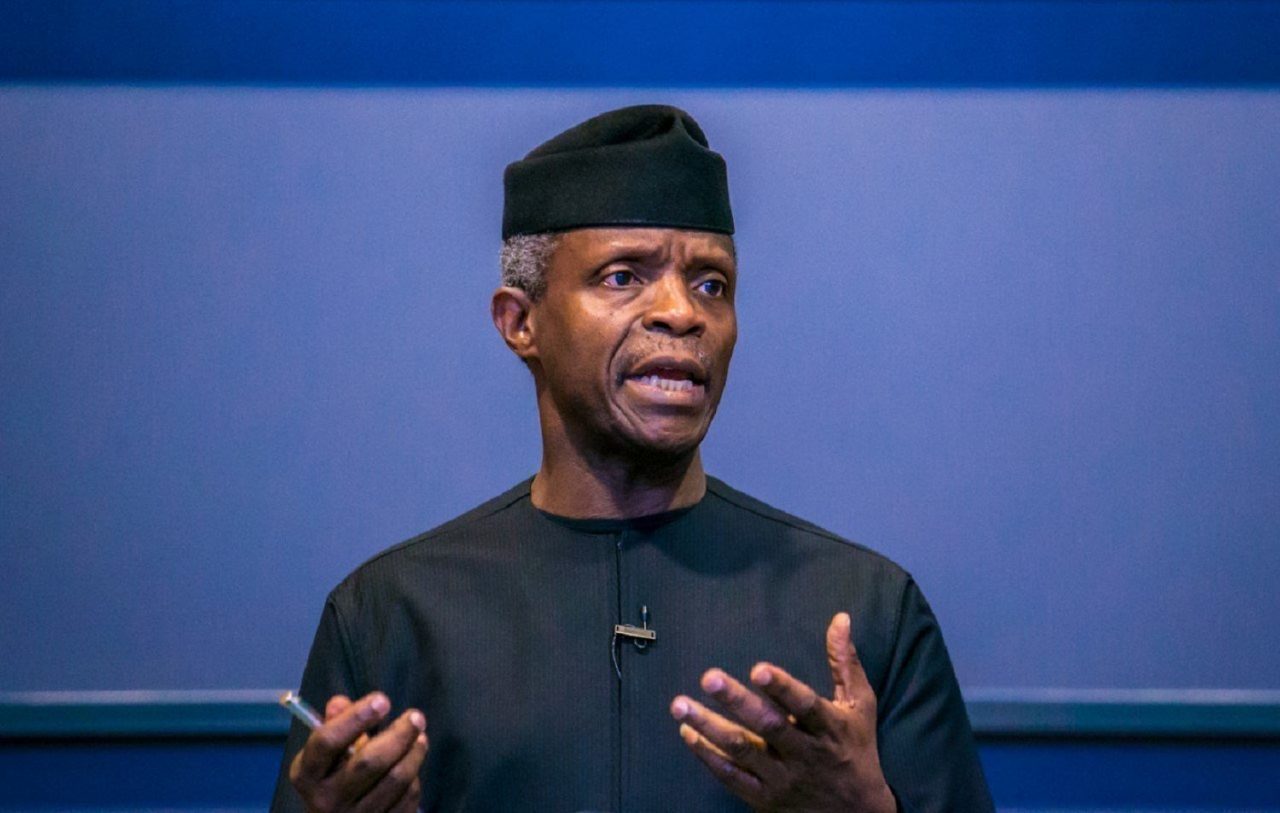By Ukpono Ukpong
Vice President Yemi Osinbajo, has said that in order for Africa to fulfill the needs and yearnings of its people while attaining its growth ambitions, the role of knowledgeable leadership committed to good governance remains critical.
Prof. Osinbajo stated this over the weekend in a lecture he delivered virtually to the 2023 Africana Conference of the Fletcher School, Tufts University, USA, entitled “Africa 2050: Making Growth Work.”
The Vice President who addressed a wide range of issues affecting Africa’s development noted that though situations of wars, pandemic, political strife and energy crisis, among other factors, were inhibiting development in the continent, adding that Africa’s growth ambitions will surely need knowledgeable leadership committed to good governance.
“Apart from the serendipity of getting the right leaders at the right time, the things I have spoken about fall within the purview of national governments. The reality though is that getting the right mix, timing and sequencing of development policies and implementing them successfully remains a major challenge,” the Vice President noted
Similarly, the Vice President restated his view that “Africa has the potential to become the first truly green civilisation – the first civilization on earth to use renewable fuel for purposes of a transformative economic journey.”
According to him, “since it has the lowest carbon emissions, Africa can develop by deploying and using green energy effectively and by mobilising its young population to promote green manufacturing on a scale that would make it the global green factory of the world.”
READ ALSO: Oborevwori ready to hit the ground running on May 29…
Closely related to the continent’s growth ambitions, Prof. Osinbajo noted, are the external environment driven by the global economic order, peace and stability.
He cited success stories in Japan, South Korea, Malaysia, Indonesia, China, and increasingly India and Vietnam, noting that “the liberal international economic order allowed for the exchange of ideas, technology and know-how across countries and could be said to have peaked with the globalisation that started in the late 20th Century.”
Continuing, he noted that “the claim has been made that more people were taken out of poverty in post Second World War period than in the preceding 500 years. This is not so difficult to believe if we consider the remarkable transformation of China and India. For instance, China is reported to have lifted 770 million people out of poverty over a forty-year period, while India is said to have lifted 415 million people out of multi-dimensional poverty over the last 15 years.”
Prof. Osinbajo, however, submitted that Africa has not been very lucky, noting that “…we should ponder a bit on the global economic order and ask ourselves whether the conditions under which recent late developers grew fast is still available and would still be available to support Africa’s quest to make growth work over the next 27 years.” That is between now and 2050.
“To be candid, the omens do not look good and it seems to me that those of us with an abiding interest in international relations must work together to ensure that it continues to enable global peace and security, as well as economic progress.”
On peace and security, the VP alluded to the fact that “the ability of Africa to make the most of growth depends a great deal on peace and security in the rest of the world and within the continent.”
Prof. Osinbajo then urged developed countries to support the fight against terrorism in Africa, especially in sub-Saharan region.
He said, “given the scale of the problem and the fact that the threat of terrorism anywhere on earth is a threat to the whole of humanity, I think it is time for the global community to treat the menace of terrorism in the Sahel as a common challenge.
“As I have stated on several occasions, this is one area in which the great powers and emerging powers can put aside rivalries and work together with ECOWAS and the African Union on an initiative to stamp out terrorism in Africa, especially in the Sahel.”
On the issue of access to resources, the VP added his voice to the call for the framing of “a new institutional framework for debt restructuring that goes beyond the Debt Service Suspension Initiative and the Common Framework.”
He noted further that, “what is needed at this time is a new international framework for tackling debt issues along the lines of The Global Sovereign Debt Roundtable that took off at the IMF/ World Bank Spring meetings.
Follow us for more news update follow us on www.dailytimesng.com
